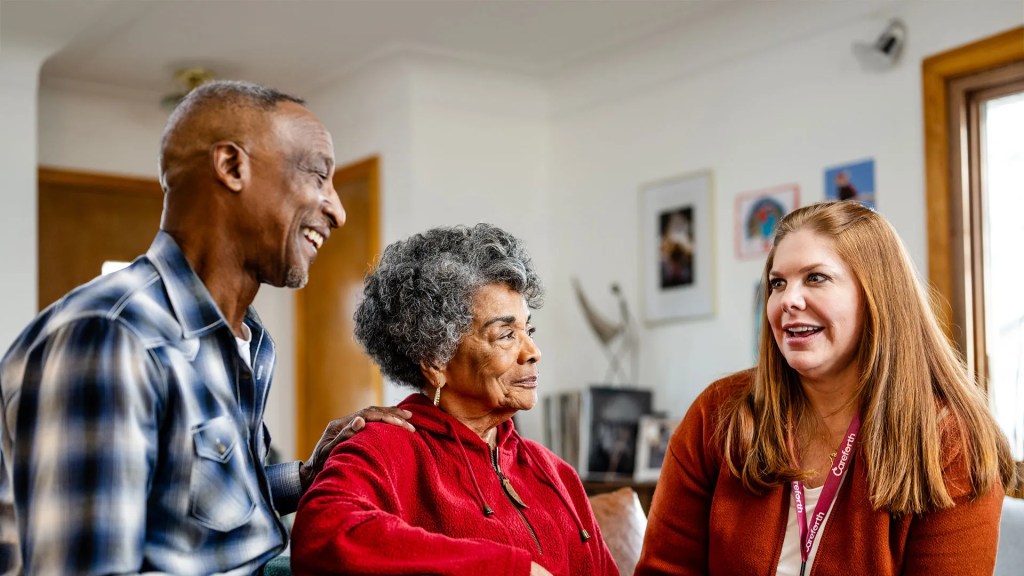Integrating family caregivers into the formal care team is a worthwhile goal, offering benefits for care recipients, family caregivers, and professional health care providers. However, effective family caregiver integration remains a challenge due to several prominent barriers, including identifying and communicating with family caregivers, which we discussed in more detail
in a previous post, as well as time limitations, competing demands, and trust and cultural barriers, which are common challenges faced by family caregivers in a variety of situations.
Careforth recently sponsored a report titled
A Framework for Integrating Family Caregivers into the Health Care Team by RAND Health. The report identifies key barriers to effective family caregiver integration as well as potential policy solutions to overcome those challenges. Throughout National Family Caregivers Month, my colleagues and I cover the RAND report’s roadmap to achieving better family caregiver integration through a series of blog posts exploring the report’s valuable findings.
In this third post in our series, we’ll explore how time limitations, competing demands, and trust and cultural barriers make family caregiver integration challenging.
Read the full RAND Corporation report here.
Time Limitations and Competing Demands
Clinical providers and family caregivers alike are no strangers to time limitations and competing demands, especially in a COVID-19-stricken world where caregivers have to find a way to juggle a variety of responsibilities all at once.
For example, family caregivers in the
sandwich generation feel the squeeze from the pressure to balance work, caring for their children many of whom are learning remotely, and caring for their aging or disabled parents, while others struggle to balance their careers with the demands of caregiving and their own well-being. It’s no surprise that many family caregivers feel the weight of caregiver stress and
caregiver fatigue, only compounded by the stressors brought on by the COVID-19 global health crisis.
On top of the challenges at home and at work, the health care system can be difficult for family caregivers to navigate, and caregivers may not have the time it takes to determine how to reach out and communicate with their loved one’s health care team. Finding time when both providers and family caregivers are available to discuss a patient’s care is easier said than done.
Clinical providers struggle with the pressure to address patient concerns as quickly as possible, limiting their time to
communicate with family caregivers. The growth of value-based payment models and person-centered care, as well as the addition of nonmedical benefits to Medicare Advantage Plans are a shift in the right direction in the U.S. health care system, supporting more interaction between family caregivers and providers. Unfortunately, these changes are slow and incremental and can vary across health care delivery systems.
Trust and Cultural Barriers
Trust and cultural barriers are another significant obstacle to achieving family caregiver integration. There may even be disagreements among professional care providers about
how much family caregivers should be involved. It also takes time to build trust between family caregivers and formal care providers, which can limit information-sharing in early interactions.
Both patients and family caregivers are diverse, coming from a variety of cultural backgrounds that can heavily influence their experience with the health care system. For instance, as cited in our report, family caregivers in communities of color are more likely to experience
caregiver strain compared to white family caregivers, and they’re more likely to worry about making mistakes, particularly when they’re
handling complex caregiving tasks.
Additionally not all family caregivers are native English speakers. This adds confusion when faced with complex medical terminology, which can inevitably lead to miscommunication. It can also make family caregivers hesitant to communicate with the formal care team if they feel that they can’t express their needs adequately or feel that the care providers don’t understand their concerns.
It’s vital for professional care providers to recognize cultural backgrounds and communicate with patients and family caregivers in a way that’s in line with their cultural norms, such as how their culture views caregivers or treats older adults.
RAND Corporation’s research explores these and other barriers to effective family caregiver integration, as well as potential policy solutions for achieving better integration between family caregivers and the formal care team. In the next post, we’ll discuss potential policy directions that can reduce or eliminate these barriers, starting with ways to identify family caregivers.



